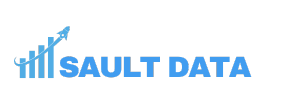In the digital era, data is the backbone of successful marketing and sales strategies. As businesses aim to reach targeted audiences with precision, industry-specific special databases have evolved rapidly. From AI integration to hyper-personalization, here are the latest trends shaping the future of niche databases across sectors.
AI-Driven Data Collection and Enrichment
Artificial Intelligence is revolutionizing whatsapp data how databases are built and maintained.
Automated Data Scraping
AI tools now automate the extraction of relevant data from websites, job boards, news sources, and public records. This ensures supercharging growth with lead generation real-time updates and significantly reduces manual workload.
Smart Data Validation
Machine learning algorithms are being used to detect duplicates, verify contact information, and predict which leads are most valuable. This results in cleaner, more reliable databases.
Hyper-Personalization of Industry Data
The demand for hyper-personalized marketing has fueled the creation of highly segmented databases.
Industry and Sub-Industry Segmentation
Instead of broad categories uae cell number like “healthcare” or “finance,” businesses are now drilling down to specific niches such as “telehealth platforms” or “fintech startups.” This allows for more targeted and effective outreach.
Behavioral and Intent Data
Modern databases include behavioral patterns such as site visits, content downloads, and social media interactions. Combined with intent data, businesses can identify and reach out to potential buyers at the right moment.
Compliance-Centric Data Strategies
With evolving regulations, compliance has become a cornerstone in database development.
GDPR, CCPA, and Beyond
Companies are adopting privacy-first strategies by obtaining explicit consent and providing easy opt-out options. Tools that anonymize or tokenize data are also trending to stay compliant without losing insight.
Transparency and Trust
Data collection strategies now emphasize transparency, with clear privacy policies and consent management platforms helping build trust with users.
Integration with Marketing and Sales Ecosystems
Industry-special databases are no longer stand-alone assets—they are integrated with CRM, CDP, and marketing automation tools.
CRM Synchronization
Platforms like Salesforce, HubSpot, and Zoho now enable seamless syncing of industry-specific data to ensure sales teams work with up-to-date, enriched contacts.
Real-Time API Access
APIs provide real-time data access and updates, ensuring marketers always work with the latest contact details, firmographics, and behavioral metrics.
Real-Time Lead Scoring
Modern platforms assess lead quality in real time based on behavior and demographics, helping teams prioritize high-value prospects.
Predictive Modeling
Using AI to forecast customer behavior, businesses can segment and retarget more effectively, increasing campaign ROI.
Conclusion
The evolution of industry-specific special databases is being shaped by automation, AI, personalization, compliance, and real-time intelligence. As companies strive to reach niche audiences more efficiently, investing in these modern trends can provide a competitive edge. By adopting these innovations, businesses ensure that their databases not only stay relevant but also drive smarter decisions and better results.

